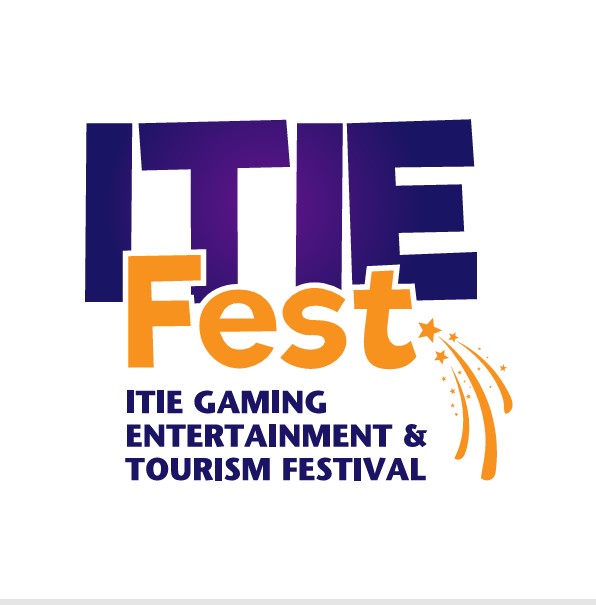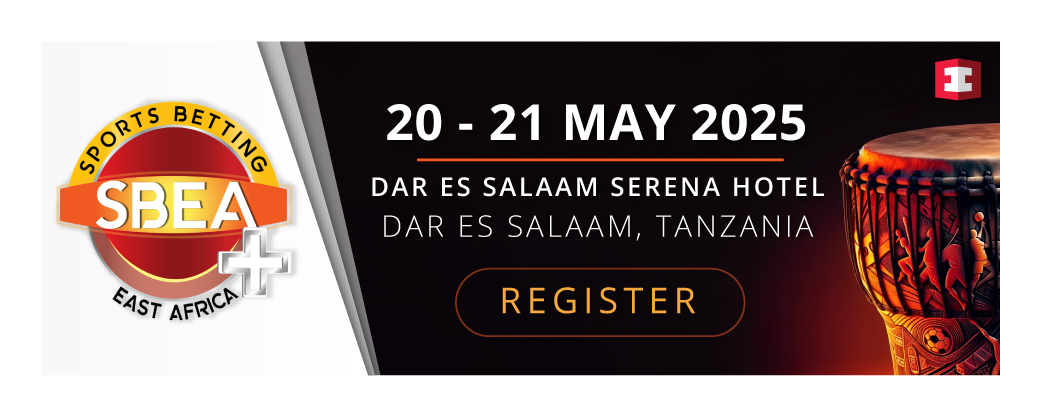Interview: Exploring the Dynamics of Betting - Esports vs. Traditional Sports!

Thomas Donson, Head of Trading at DATA.BET
1. What surprises traditional sports operators most when they first enter the esports betting market? How does the reality of esports match their expectations?
Esports has been available in the industry for nearly 25 years since its inception as a sportsbook niche product for online viewing and betting. Yet, it's surprising how many operators worldwide still overlook or misunderstand its potential. Working with esports for the first time, bookmakers automatically treat it as a bolt-on product to their existing ones. That’s why it is always a surprise when they begin to see the interest they receive from their customer base.
There are also plenty of similar features between traditional sportsbooks and esports bets, meaning that bookmakers can still keep their identity in choosing how to deliver products but unlock a whole new market segment as well.
One of the biggest myths in the industry is that esports is still for the future. We hear narratives like “when it grows” or “the customer base gets older,” etc. The facts are that the esports niche is no longer a small offering but can compete as one of the biggest products in any sized operator.
Established operators and tournament organizers hold hundreds of competitions around the world, with large prize pools available for the teams and players who participate and 24/7 coverage of many different titles that can surpass nearly any other sport.
Bookmakers are also often surprised when they learn how in-depth our teams have to be to accurately offer the best odds in the market. The volume of data and information we obtain both pre-event and live during a game can easily surpass traditional sports. However, with the mix of a skilled trader base and mathematical models, DATA.BET is able to produce the highest range of markets with the biggest event coverage in the industry.
2. Esports events often have faster pacing and unique formats compared to traditional sports. How do these elements impact trading models and the types of bets offered?
Any operator who has a strong range of traditional sports will be well aware that many sports are diversifying as much as possible to capture new markets and interest in younger audiences. Esports has had this ingrained in its competitive makeup since its inception. As tournaments expand and audiences become more global, we see changes to the number of games and/or format of events to appeal to the growth of these events.
This creates some technical challenges in building trading models that we use to accurately moderate a high number of markets for the offered events. We also find that the majority of our customers are already focused on areas of the product which support these changes. Core market offerings always remain the biggest revenue generators in any game for our clients. However, fast-settling bets are extremely popular in esports, with the user on average having a higher volume of wagers compared to the traditional sportsbook customer, especially in-play. According to our statistics, at least 8% of users place multiple bets on esports events, and this number keeps growing. It’s important to always focus more on these markets, which allow the tournament operator to consistently offer a good range of bets regardless of any change of format or gameplay.
In addition to these, the role of official data is highly significant. Working directly with the tournament organizers and data providers ensures that information is utilized as accurately and efficiently as possible. This means a more consistent offering of low latency and a high volume of markets to match the expectations of the platforms' customer base regardless of what is happening in the match at any given time.
3. With younger and highly engaged audiences in esports, how do betting patterns differ from those in traditional sports? Are there specific types of bets or promotional tactics that appeal more to esports fans?
Overall, esports and traditional sports fans demonstrate similar qualities. They all have interests in team performance and the key areas that can make a big difference to the game's outcome.
Where we have seen a more significant distinction is in focus on individual performance. A lot of players have a much higher following than most teams within esports. They are a brand name themselves and bettors follow players just as much as the team they are currently playing for.
So, it’s important for suppliers to prioritize features like Player Props (PP) to present customers with the markets for the players they like to watch. For instance, PP accounted for about 20% of all CS2 bets, hitting the top 10 markets for the discipline.
This also involves a better understanding of users' habits. Currently, DATA.BET is very focused on personalization and understanding what each individual bettor prefers. With this, we can keep engagement much higher through the games.
Depending on the tournament format, we also see a lot of repeat opportunities over multiple maps for the same player to change strategy or improve. The shifting dynamics in most esports, whether it be maps, weapons, starting locations, or attack vs defense, means that a customer can enjoy seeing their favorite players in different scenarios and often select a range of unique markets that we offer to supplement their involvement in the game as it progresses.
4. How does the high degree of variability in esports, like frequent game patches or roster changes, affect risk management and odds setting for bookmakers?
The biggest challenge in esports as a whole is keeping up with the changes within any title. Unlike traditional sports, where the rules and field of play remain constant for many years, esports can experience multiple changes to these environments within a single year.
DATA.BET has a large team of experienced traders who work with our in-house quants and development departments to ensure that our models and trading statistics remain as up-to-date and relevant as possible through any given change. But this is often not enough itself to ensure a high-quality product.
Our traders spend most of their time actively playing or engaging in the titles, when not trading. Their knowledge is key to predicting the outcome of the event. As with any team sport, roster changes are significantly important and can heavily influence the overall odds. We use a large database of statistics and metrics to aid us in understanding the effect that these changes can have but this also impacts the team dynamics on different maps, weapon usage, or role that the player may take on during the game. So it is important that we work continuously on improving and updating our models.
We also have a team solely focused on risk management for our clients. Working closely with traders, the risk team implements a mix of automated reporting tools and human feedback to help identify anomalies in customer behavior that could cause concern.
Any updates and changes in format can severely impact a game's expected outcome. So, keeping our risk team as updated as our trading team is vital in allowing them to use their experience in interpreting the change in data and profiling customers to manage our clients' customer base profitably.
5. Unlike traditional sports with established seasons and leagues, esports can be dynamic and fragmented. How do you handle the constant change in esports schedules and titles to maintain an engaging betting product?
The esports calendar is not as fixed as most sporting calendars. With the regular addition of new tournaments by a range of different operators, alongside competing tournaments from a variety of rightsholders, esports has quite a flexible schedule annually.
To be able to offer a 24/7 product for each different title, it is a challenge that the trading team has to keep up to date with all the major data providers in the industry and all upcoming tournament hosts looking to create the next biggest event. By working with official data providers, sportsbook suppliers offer access to every top-tier event in esports. However, that is not enough for the customer who wants to be able to log onto their account and watch a game regardless of timezone.
Like any sport, when a larger tournament is in progress, this takes precedence in terms of interest. But it also means gaps on either side of the tournament when activity usually drops.
To improve our users' engagement, DATA.BET will work with streamers directly to offer continual product availability. Utilizing free-to-stream services means that even if a customer does not have access to a broadcast via one of our client's sites, they can easily watch the event via a social media platform. Having the ability to work with streamers allows us to plug any gaps in downtime between tournaments where otherwise our partners could be losing revenue.
In other areas, we seek to work with teams involved in the sports via our partners. Actively promoting sponsorship and engagement in events allows more competitive tournaments to take place. This funding also helps teams produce more content between the larger events and provides a great opportunity for the customer to continue to watch their favorite players throughout the week.
6. Many traditional sports operators focus on ‘live betting’ as a key revenue stream. In your experience, does live betting play a similarly significant role in esports, and what adjustments are needed to capture its potential fully?
As with most traditional sportsbooks, over the last ten years, the trend towards live viewing of sporting events and an increase in live betting turnover has skyrocketed. Growing viewing numbers and match streaming have been pivotal in boosting revenue for many years now. However, esports has had this at its heart since its inception.
We see this focus on live betting expansion year on year as not only does access to social media platforms boost, but data costs in emerging markets decrease. This makes engagement and online viewership numbers much higher.
For DATA.BET, live betting now accounts for 83.5% of our turnover. While we offer great pre-event pricing and features to increase pre-event single and multiple betting opportunities, it's clear that our audience wants to become more and more involved in the game as they watch it.
This means that we are always focused on improving our current products and innovating in the market to deliver a better in-game experience. Personalization and fast-paced markets are the foundation for our customers. But we also focus very heavily on having the best uptime for betting opportunities, the total number of events covered, and widgets, such as Scoreboards and Pitch Tracker, in the market so that our clients can offer the very best betting experience in the industry.































rules for writing comments